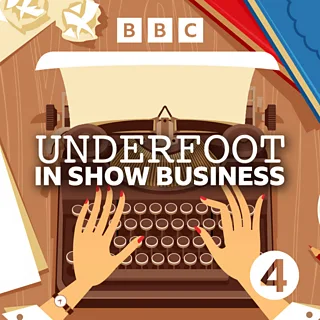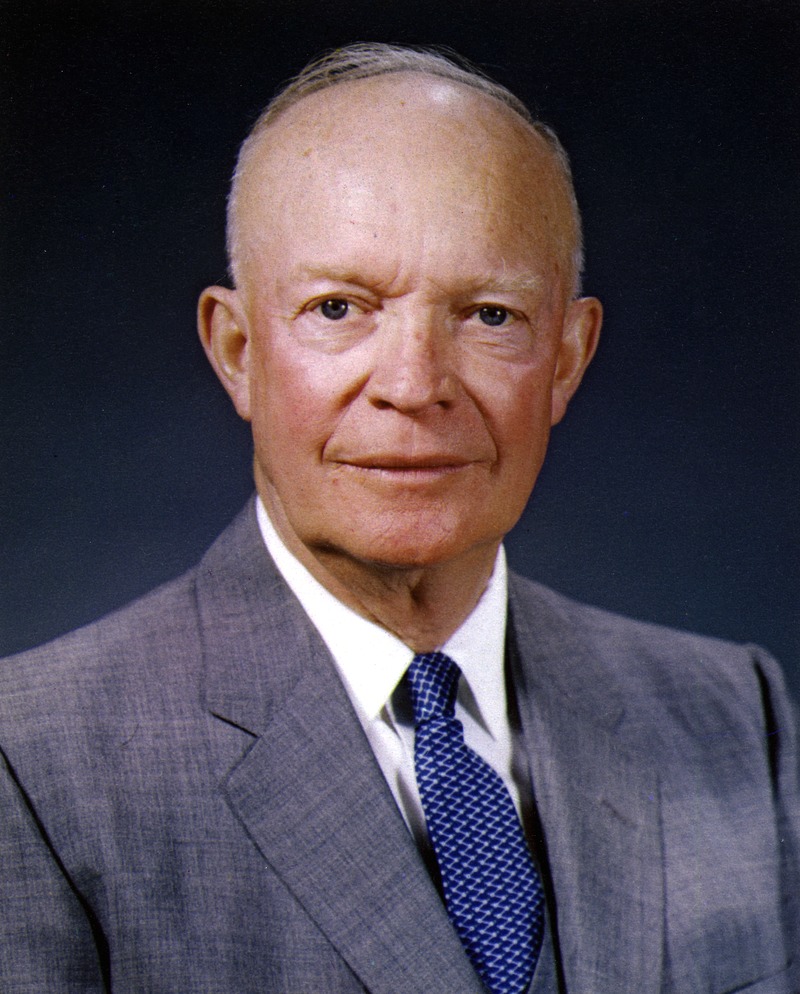No, that's not the title of a new movie. It's just a mix of some of the things often misquoted from movies and TV shows. Funny thing about misquotes: They're usually near-misses--very close to what was said, but not quite. And thanks to the magic of DVDs and streaming and YouTube, we can now look back at those scenes almost whenever we want. After all, Clarice, I had an old friend for dinner, and we're not in Kansas anymore.
For what it's worth, that kind of lapse is called The Mandela Effect, a situation in which a large group of people share a strong yet false memory, and remember it as a reality. (The name refers to the belief, by some, that Nelson Mandela died in prison in the 1980s, although he actually died at his home in 2013.) It of course doesn't help our memories, in this case, that some famous movie quotes wind up shortened or otherwise changed when used again in sequels and remakes and satires.
Take a look, and see how many of the following quotes you can remember, and how many you might've remembered wrong.
Casablanca -- No one in the movie ever says, "Play it again, Sam." Just before what might be the longest close-up in film history, Ilsa says, "Play it once, Sam. For old times' sake." And later, alone and brooding in the darkened tavern with Sam, Rick says, "You played it for her, you can play it for me. If she can stand it, I can. Play it."
The Treasure of the Sierra Madre -- Almost everyone remembers the line "We don't need no stinkin' badges." But what the bandit actually says to Bogie and his friends instead is "Badges? We ain't got no badges. We don't need no badges. I don't have to show you any stinkin' badges."
The Wizard of Oz -- After the tornado, Dorothy does not say, to her dog, "Toto, I don't think we're in Kansas anymore." The correct quote is, "Toto, I have a feeling we're not in Kansas anymore." And yes, I realize I'm nitpicking, here. But I wanted this post to be longer than just a couple of examples.
Planet of the Apes -- At the very end, as Charlton Heston's character looks up at the ruins of the statue, he does not say, "Damn you. Damn you all to hell." All I can figure is, that's the network-TV prime-time sanitized version. What he really says is, "Goddamn you. Goddamn you all to hell."
Nowhere in the Johnny Weissmuller Tarzan movies (there were twelve of them) will you hear the quote "Me Tarzan, you Jane." In the first movie, Tarzan the Ape Man, he and his sweetie just point back and forth to each other and say their names, over and over.
The Empire Strikes Back -- I can't tell you how many times I've heard the quote "Luke, I am your father." But what Darth Vader really says, in that great James Earl Jones voice, is, "No, I am your father."
Dracula -- Bela Lugosi never says, "I vant to drink your blood." With or without the Hungarian accent.
All About Eve -- Another one-word mistake: Margo Channing doesn't say to the group, "Fasten your seat belts. It's going to be a bumpy ride." She says, "Fasten your seat belts. It's going to be a bumpy night." A bumpy night?
Gone with the Wind -- Along those same lines, Rhett Butler's parting shot is not "Frankly, Scarlett, I don't give a damn." He says, "Frankly, my dear, I don't give a damn."
Dirty Harry -- Despite what most of us think we remember, Inspector Callahan never says, "Do you feel lucky, punk?" He says, "You gotta ask yourself one question: 'Do I feel lucky?' Well, do ya, punk?"
The Graduate -- Ben Braddock's question to Elaine's mother is often quoted as "Mrs. Robinson, are you trying to seduce me?" Instead, that should be "Mrs. Robinson, you're trying to seduce me." (pause) "Aren't you?"
Jaws -- Sometimes the difference between real and remembered comes down to just one word. Chief Brody does not say to Quint, "We're gonna need a bigger boat." He says, "You're gonna need a bigger boat." Though, truthfully, all of them are.
James Cagney never says, in any of his movies, "You dirty rat." The closest he comes is in Taxi! He says, "Come out and take it, you dirty yellow-bellied rat."
White Heat -- Cagney again, as gangster Cody Jarrett. He doesn't say, "I'm on top of the world, Ma!" What he says is, "Made it, Ma! Top of the world!"
Hondo -- In the 1953 John Wayne Western, Hondo Lane does not say, to bad guy Ed Lowe, "A man's gotta do what a man's gotta do." He says, "A man oughta do what he thinks is best." (Back then, moviemakers didn't much care what women thought.)
Star Trek -- Never in the entire TV series does Captain Kirk, or anyone else, say, "Beam me up, Scotty." They come close, a lot of times, but never use that exact phrase.
Ghostbusters -- Bill Murray's character does not say, to Aykroyd's character, after an unsuccessful busting, "I've been slimed." Instead he says, "He slimed me."
The Simpsons -- Bart Simpson never says, anywhere or anytime in the series, "Cowabunga, dude." That quote came instead from Teenage Mutant Ninja Turtles. Whoodathunkit, bro?
Field of Dreams -- Most of us think the otherworldly voice says to Ray, "If you build it, they will come." It doesn't. The team does indeed come, and so do tourists, later, but the voice says, "If you build it, he will come." Meaning Ray's father.
Snow White and the Seven Dwarfs -- The Evil Queen doesn't ask, "Mirror, mirror on the wall, who is the fairest of them all?" Instead she asks, "Magic mirror on the wall, who is the fairest one of all?' It should be mentioned, though, that in the original Brothers Grimm fairy tale it was "Mirror, mirror . . ."
Celebrity impersonators love to use the Cary Grant quote "Judy, Judy, Judy"--but he never says this to anybody, in any of his movies.
The A Team -- Mr. T's character B. A. Baracus if often quoted as saying, "Pity the fool." Actually, folks who remember that are half right: The actor Mr. T does say the line, but he says it as boxer Clubber Lang, in the movie Rocky III. The quote didn't come from The A Team at all.
The Silence of the Lambs -- Dr. Lecter does not say, "Hello, Clarice," either in the prison with her or on the phone with her at the end of the movie. He says, only once, "Good evening, Clarice." NOTE: I think he does say, "Hello, Clarice" in Hannibal, the first Lambs sequel. Although he was addressing a different actress in the Clarice Starling role.
Titanic -- Jack doesn't say, with arms outstretched, "I'm king of the world." He says, "I'm the king of the world." I know: nitpicking, nitpicking.
Wall Street -- Gordon Gekko's quote is not "Greed is good." It's "Greed, for lack of a better word, is good." Maybe the screenwriter needed a bigger wordcount for the script.
Forrest Gump -- Forrest does not say, "Life is a box of chocolates." He almost does, but the actual line is, "Mama always said life was like a box of chocolates."
Lord of the Rings: The Fellowship of the Ring -- Gandalf doesn't say, to his group in the mine, "Run, you fools." He says, "Fly, you fools." And no, they don't have wings; what he's telling them to do is flee.
By now you probably want to flee, too, and frankly don't give a damn, but before you do . . . please let me know if you can think of other misquoted lines from the world of cinema or television. Did any of those I listed surprise you? Did I misquote any of the misquotes? And forgive me for wishing that someday some of my own fictional dialog will be quoted someplace, by anyone, either correctly or incorrectly. Hope springs eternal.
Meanwhile, keep watching those movies and series. It's necessary research, you know, for us writers. At least that's what I told my wife, the other day. She replied, "You're gonna need a bigger TV."
Actually she didn't say that, which makes it a misquote. What she did say was "Sure it is," and rolled her eyes. But the Shadow knows . . .






























